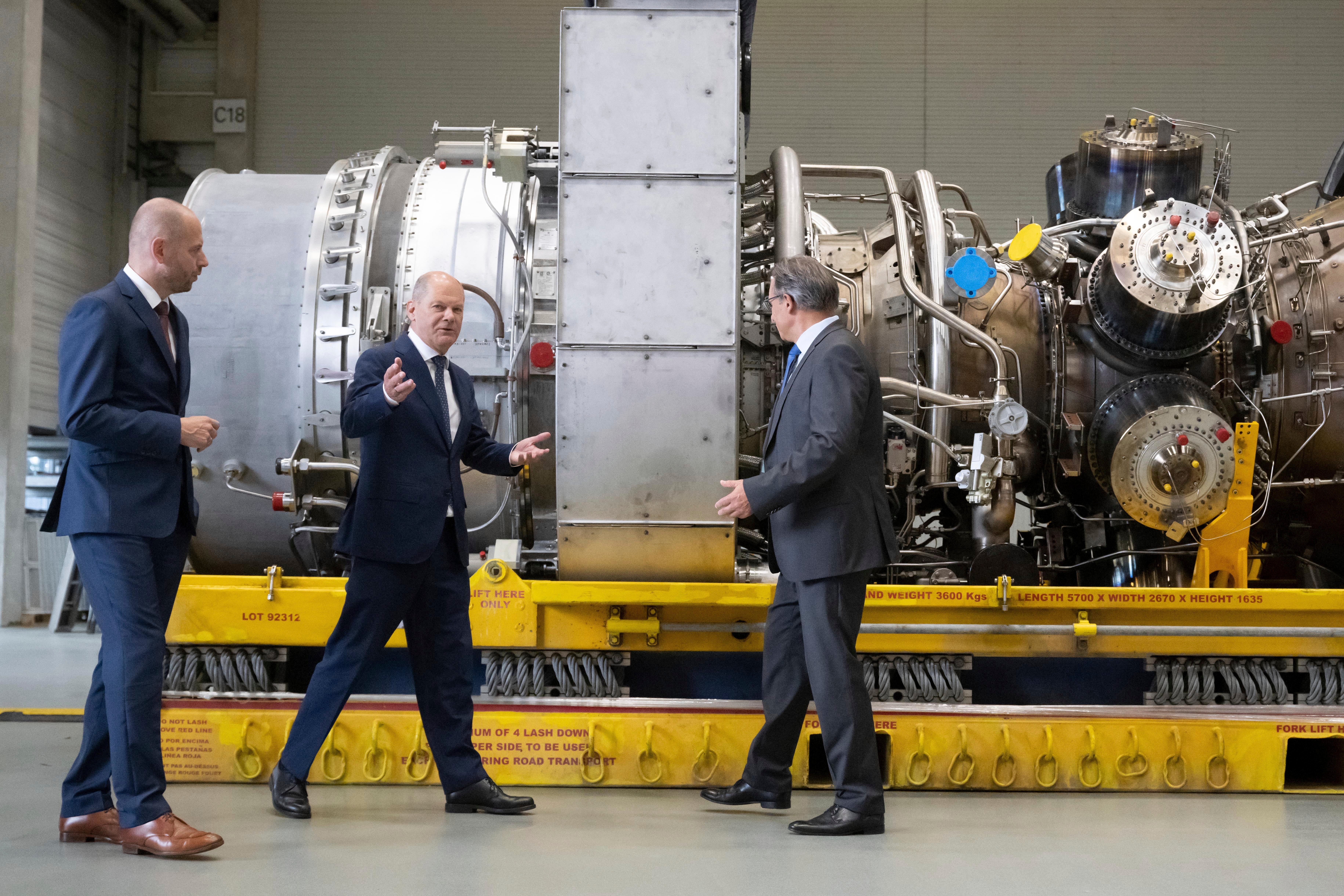Hard times ahead but Germany says it will stick by Ukraine
‘It is clear that we stand firmly on the side of Ukraine,’ says Berlin

German backing for the sanctions imposed on Russia after Moscow invaded Ukraine is not waning, even despite a looming energy crisis for the crisis in the shape of rising bills and potential rationing, Chancellor Olaf Scholz said on Monday.
Berlin has long been reliant on Russian gas, with some 55 per cent consumed by Germany imported from Moscow before the start of the war. Since the invasion, Berlin has scrambled to import energy from elsewhere, including deals with Norway and Gulf gas giant, Qatar.
Despite this, the country should prepare for “difficult months ahead”, the Chancellor’s spokesperson said on Monday. Many German homes are still reliant on Russian gas, meaning it could be a very long winter for ordinary citizens.
However, Germany’s leader said it would not affect the country’s support for Kyiv.
“It is clear that we stand firmly on the side of Ukraine and we stand behind the sanctions that we agreed together with the European Union and the international community,” added the spokesperson.
Also, on Monday, Berlin ruled out any approval for the shelved Nord Stream 2 pipeline. This was a project to double gas capacity from Russia to Germany. Construction of the pipeline was completed last year, ut suspended in the final days before the invasion.
To emphasise support for Ukraine, which has been questioned in some quarters, and led to some fractious moments between Berlin and Kyiv, it was announced on Monday that the first three German Gepard self-propelled anti-aircraft systems had been delivered to the war torn country.
The air defence systems, which are operated by three-person crews and can hit targets at up to four kilometres (2.5 miles), are one of various pieces of Western military kit being supplied to Ukraine to help it fend off the Russian advance.
Meanwhile it was announced on Monday that local officials with Scholz’s party had rejected a bid to expel former Chancellor Gerhard Schroeder over his close ties to Russia.
An arbitration committee of the centre-left Social Democrats’ branch in Hannover, where Schroeder lives, considered 17 applications from party members for proceedings against him.
Schroeder’s longstanding connections to the Russian energy sector and refusal to distance himself fully from President Vladimir Putin after Russia invaded Ukraine have left his political standing in tatters.
However, the SPD committee determined his actions don’t constitute a breach of the party’s rules.
Schroeder, who served as chancellor from 1998 to 2005 and was the Social Democrats’ leader from 1999 to 2004, has shown no signs of heeding calls from senior party figures to tone down his rhetoric on Russia or leave the party of his own accord.
That has come with political consequences within Germany.
In May, German lawmakers agreed to shut down Schroeder’s taxpayer-funded office, and he gave up the title of honorary citizen of Hannover, preempting a likely decision by city officials.
Schroeder has shrugged off the pressure and continued to maintain his ties with Putin. He most recently met with the Russian leader on a visit to Moscow in late July.




Join our commenting forum
Join thought-provoking conversations, follow other Independent readers and see their replies
Comments